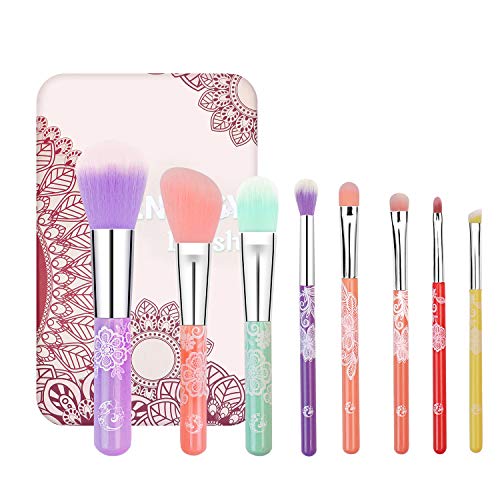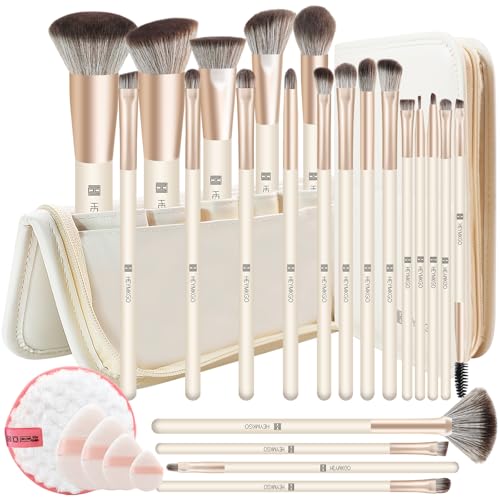Proctor and Gamble says: "Our ancestors washed their hair only rarely. We know that hair left unwashed for several weeks
turns into a matted, smelly mess. We can only imagine the state of the scalps beneath those elaborate powdered wigs we see in portraits on the walls of stately homes!
This doesn't fit with our modern image of cleanliness and health. Hair can be washed every day, even several times a day if necessary. Today's shampoos do not damage hair. Their conditioning agents positively protect the cuticle against harm from brushing and combing.
So how often you wash your hair is a purely personal decision, one for you alone."
About.com says: "Unless your hair is very fine and gets oily very quickly, try not to wash your hair too often. The natural oil working its way down the strands is actually healthy. "
Live Journal Says: "Wash every day: Fine, thin hair and most short styles. Fine hair tends to become flat and greasy-looking if left unwashed for too long, thanks to the natural oils from the scalp. Short hair can become greasy quickly, too. Pick a gentle shampoo and follow with a light conditioner -- sometimes called a detangler -- with every shower.
Wash two to three times a week: Long, thick and/or curly hair. These hair types tend to become dry easily, especially at the ends. That's because the scalp's natural, moisturizing oils have a long way to travel to get to the ends, and are often washed away before reaching them. By skipping a day in between shampoos, these natural oils have more opportunity to lubricate and condition the hair. On your off days, simply style hair dry, or rinse with warm water, condition, then dry and style as usual. Choose a moisturizing shampoo and conditioner.
Wash one to two times a week: Very dry, kinky, African-American, and/or chemically processed hair. Hair like this is either naturally very porous, and therefore very dry; or has been severely damaged by perming solutions, straighteners, or colorings. These hair types benefit from as little washing as possible, plus heavy conditioning packs every week. Look for a shampoo formulated for chemically processed or African-American hair, which will be more moisturizing and gentler than regular shampoos. Follow with a thick conditioner."
What plan do you follow?
turns into a matted, smelly mess. We can only imagine the state of the scalps beneath those elaborate powdered wigs we see in portraits on the walls of stately homes!
This doesn't fit with our modern image of cleanliness and health. Hair can be washed every day, even several times a day if necessary. Today's shampoos do not damage hair. Their conditioning agents positively protect the cuticle against harm from brushing and combing.
So how often you wash your hair is a purely personal decision, one for you alone."
About.com says: "Unless your hair is very fine and gets oily very quickly, try not to wash your hair too often. The natural oil working its way down the strands is actually healthy. "
Live Journal Says: "Wash every day: Fine, thin hair and most short styles. Fine hair tends to become flat and greasy-looking if left unwashed for too long, thanks to the natural oils from the scalp. Short hair can become greasy quickly, too. Pick a gentle shampoo and follow with a light conditioner -- sometimes called a detangler -- with every shower.
Wash two to three times a week: Long, thick and/or curly hair. These hair types tend to become dry easily, especially at the ends. That's because the scalp's natural, moisturizing oils have a long way to travel to get to the ends, and are often washed away before reaching them. By skipping a day in between shampoos, these natural oils have more opportunity to lubricate and condition the hair. On your off days, simply style hair dry, or rinse with warm water, condition, then dry and style as usual. Choose a moisturizing shampoo and conditioner.
Wash one to two times a week: Very dry, kinky, African-American, and/or chemically processed hair. Hair like this is either naturally very porous, and therefore very dry; or has been severely damaged by perming solutions, straighteners, or colorings. These hair types benefit from as little washing as possible, plus heavy conditioning packs every week. Look for a shampoo formulated for chemically processed or African-American hair, which will be more moisturizing and gentler than regular shampoos. Follow with a thick conditioner."
What plan do you follow?

























